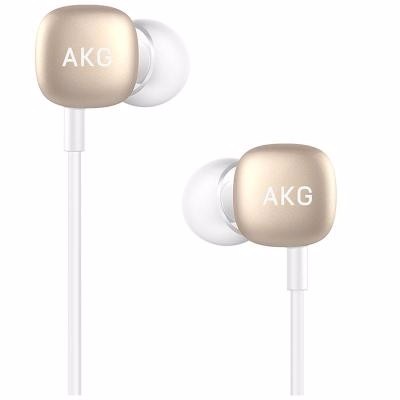- Website construction, how to choose static pages and dynamic pages
- Reading the Queen of the Internet and her report in one article: Investment Bible and stock selectio
- Novice science! What is user interface and experience design?
- The difference between user interface design and experience design
- Shangmeng.com School: Single-page SEO site group technology, optimize ranking with 10 websites!
- The relationship between website design and SEO is analyzed by masters from these 4 dimensions!
E-mail:/en
Phone:10097822254
TEL:400-615-3824
Address:艾尚体育有限公司
The relationship between website design and SEO is analyzed by masters from these 4 dimensions!
SEO (Search Engine Optimization) and effective website design go hand in hand. Good website design is about creating a website that attracts the target audience and getting them to take certain actions. However, if the site does not follow current SEO best practices, its ranking will be affected, which will result in a smaller number of visitors who actually participate in the site.
On the contrary, if the focus is on search engine optimization and how to please search engine spiders, the website may rank very high and get a lot of search engine traffic, but if the design is not satisfactory, it will be different. NS. In order to succeed in today's digital environment, the focus must be on website design and search engine optimization.
1. But, won't SEO kill the creativity of web designers?
In the past five years, the huge demand for "optimized design" has been accepted by web designers. Prior to this, designers mainly focused on the user experience, not the "robot" experience.
Nowadays, designers must not only make the website look attractive, but also make sure that the call to action must meet the requirements of the “folding” of the website pages. The website must be fast to load, breadcrumb paths must be used, clear navigation options must be With CSS, JavaScript files must be kept to a minimum... this is a difficult task.
Some designers may wonder whether all these new SEO rules will harm the freedom to create a website?
For a "clean" website design, it can help a website load quickly and be easily crawled by search engine spiders. Therefore, in reality, creativity and optimization need to be able to "prosperously develop" together at the same time.
Two, combine them
There are some core elements that support every SEO strategy and website design project:
1. Keyword Analysis
When starting a commercial website project, a thorough keyword analysis must be carried out. In order to do this, web designers must have a close and in-depth understanding of the customer's target audience and define how the demographic structure of the audience fits into the larger target market that the company is trying to reach. Then, the website should be optimized for appropriate keywords/long-tail keywords.
2. Content hierarchy
For an enterprise, creating good content is not enough, they must also strategically plan the location of the content.
Effective planning means putting relevant content in a virtual container, and making the content hierarchy clear at a glance through creative design and internal links. Moreover, an optimized website is a website that is friendly to users and search engine spiders.
3. Think from the user's point of view
Normally, the more pages or articles on your website, the more chances your target users will find you. When they land on these specific pages, you need to make sure you can help them find you easily.
So you have to think from the user's point of view, let the user immediately know the current location of the page they are visiting, and help the user switch from one page to another with as few clicks as possible.
3. Why is SEO strategy so important?
Having a proper website structure and information architecture will ultimately help companies provide a compelling user experience while reducing the need for every new growth. However, unless your brand is well-known, it is usually the search engine that is responsible for most of the traffic received by the site. SEO strategies have the ability to use important customer data to discover new potential revenue streams.
For website owners who are trying to optimize for search engines, there are some things that are often troublesome. Now, I will provide search engine optimization suggestions for website owners to get higher ranking pages.
1. URL structure
URLs created by most websites contain many random characters, such as question marks, without keywords or any valuable content. When the URL of a search engine contains SEO keywords or phrases, the page will rank higher in the search engine. Therefore, it is very important to set keywords in the URL.
2. The title of the page
One of the most important factors in search engine rankings is the page title. However, many websites have not changed their page titles. In the lime website platform, you can use the SEO title tag plug-in, which makes it easy for you to create titles for your articles and pages.
3. Duplicate content
No search engine likes to see duplicate content. Duplicate content is a major problem for some websites, because category pages and calendar/date pages often cause search engines to find the same content on multiple pages.
For website owners, there are several ways to overcome the problem of duplicate content. One method is to use a robot.txt file to instruct search engines which pages should be ignored, leaving only the main page to be indexed.
4. Meta tags
When designing a traditional static website, you can enter a meta tag (description) for each page. Although the influence of these tags on search engine rankings is not as great as before, there is no harm in having these tags on your page.
However, most website building platforms do not give users the option of adding meta tags when writing articles. For users of the Lime website platform, adding a meta tag plugin will allow you to enter meta tags for any page.
4. What are the responsibilities of a web designer in SEO?
Search engine optimization is an ongoing process, and it cannot be achieved by designing a website in a specific way. Of course, web designers should make considerable efforts to help customers build an optimized site, but what are the responsibilities of web designers in SEO and what are the responsibilities of customers?
As a business owner, the optimization of your website is more important to you than the designer (this is not to say that the designer does not care, but the designer's attention is usually focused on the visual and function of the website). You know your customers/prospects better than designers, so you should have more constructive opinions about your goals.
Maybe some customers may not know SEO and target keywords, so the ideal situation is to let customers and you work together on this issue.
In my experience, one of the easiest ways to engage customers is to simply explain that the words and phrases (titles, copywriting, etc.) used on the website have a direct impact on website rankings.
I usually ask clients to give me a list of words and phrases they think potential visitors might use in their searches. This is especially important when designing websites in industries that I'm not very familiar with.
Of course, some research may be needed. Should the client take the responsibility for keyword research, or should the designer be responsible?
My experience is that this research is usually more effective if the client is involved, but this is not always possible. Designers should have enough knowledge to advise clients and should be willing to help, but in the end it is better to involve clients as much as possible. In fact, if the client cares about SEO, the participation process will achieve a more reasonable expectation.
Setting realistic expectations may also be the responsibility of the designer.
I have some potential customers who came to me and said: "I was told by SEO experts that as long as I insert popular keywords on my website pages, my website can be ranked first or second."
In this case, I will obviously point out, "Search engine optimization requires continuous work, and this kind of work is usually not done by creating a website in some way."
I often recommend that customers add a blog to their website to get more content and improve their chances of ranking.
Concluding remarks
Although this is just a brief summary, these are the most important SEO topics that website owners and designers will face. By understanding this knowledge, you can better create a website that is friendly to users and search engines.
This article is designed by the editor of Yiyou. Originally authorized to publish the Yiyou website, unauthorized reprinting shall be investigated.
- Previous:How did CMS come into being?
- Next:Shangmeng.com School: Single-page SEO site group technology, optimize ranking with 10 websites!
-
2021-08-17How did CMS come into being?
-
2021-08-17Five core elements of website construction



